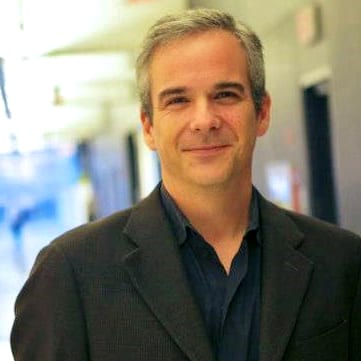Ahead of the release on November 5 of a major report by Enterprise IoT Insights into the state of the smart city market, entitled How to buy / sell a smart city – procurement models to make every city smart, we present five burning questions for five leading solutions providers around the issue of funding in smart cities.
These questions will be posed in turn, across a ‘5×5’ series of five articles (see bottom for all series entries). Here, we consider whether a centralised data management platform, which unites data streams from multiple city functions, is the key to cities attaining greater intelligence, and whether it is the definitive decision for cities setting out their investment strategies.
4 / 5 | Is there any doubt cities should build a centralised data management platform?
Keith Day, vice president of marketing, Telensa –

“The idea cities will generate insights with these centralised data management systems, leading to efficiencies, has not actually been shown yet. Those engines need really granular data, and providing that at a cost that makes sense is difficult.
“Cities should start by connecting together data from systems that are already paying for themselves, like with street lighting for example. We have a dashboard, at departmental level, but what’s important is we feed into whatever system the city chooses, whether it’s one of these big monolithic systems, or something else.
“At the moment, there is a mismatch between the general requirements of central systems and the more vertically specialised solutions out there. Our view is if you want to collect data economically, for general purpose big data, you need a general-purpose big data sensor environment, and those don’t exist today.”
Markus Keller, senior vice president for smart city, Deutsche Telekom –

“There is a lot of debate on this, and major financial implications for these types of solutions. The issue centres around the costs/benefit analysis, and the city’s understanding of data-driven business models. If a city only brings in one or two smart city solutions, such as intelligent street lighting, there is probably no case for a centralised smart-city platform.
“We see a centralised platform with many layers. The layer you implement depends on a city’s needs and the sophistication of their smart city services. A city could need a smart city platform without having any smart city applications – the layer could be used to make existing city processes, like e-government, more efficient. The more data a city has, and the more it wants to make this data accessible, determines the need for a platform.
“At the moment, many cities are hesitant to make data available as they have concerns about data privacy and protection. They mainly start with open data layers of a platform, to get used to dealing with data, and the internal and external users of the data. We would have to have a clear use case to calculate this; we are in the final stages of evaluating the different costs models.”
Alicia Asín, chief executive, Libelium –

“There is no doubt. The same goes for hardware. City councils prefer to use the same hardware provider, instead of hiring one for each application. In this way, they avoid having to learn about different hardware platforms, different technologies, incompatibilities due to interoperability problems, and so on.
“Since no one can provide absolutely everything, the challenge is offering interoperable solutions so municipalities can run them as a single system, which is scalable and resilient to adapt to new technologies. Interoperability is one of the main goals for Libelium, as well as to provide anti-vendor blocking systems.”
Max Claps, global future cities team lead, SAP –

“Uniting data streams will ultimately benefit cities in the long-term to improve the life of citizens, enhance efficiencies and foster transparency.
“Cities still operate with siloed governance, but some are starting to converge towards platforms that bring together data by domains, such as all security and safety related data, or all mobility data, or all city infrastructure and environmental data.”
Mike Monteith, chief executive, Thoughtwire –

“The bigger question is how the data will be governed to ensure the interests of citizens are protected and held to the highest standard. This will require expertise and collaboration across the ecosystem to formalise data governance and cybersecurity strategy – and design it into the smart city platform at the start of the programme.
“Once the systems are in place to ensure inclusivity of all voices and parties involved in these decisions, including the citizens, then this can be explored. From a technical standpoint, it certainly makes sense to have a more complete data engine compared with siloed solutions, which won’t ‘talk’ to each other to produce real positive results.”
This is an excerpt and forerunner for a report and webinar, titled How to buy / sell a smart city – procurement models to make every city smart, to be published on November 5. Sign up to the Enterprise IoT Insights newsletter here to get the next instalment in the 5X5 series, updates about the report, and related news. Register for the webinar here to hear from speakers from AT&T, Cisco, the City of Cardiff, Cradlepoint and Navigant.
Smart cities 5×5 | How hard is it to fund smart cities? (1/5)
Smart cities 5×5 | What’s so good about PPP? (2/5)
Smart cities 5×5 | Which smart city apps provide the surest ROI? (3/5)
Smart cities 5×5 | Should cities build a central data platform? (4/5)
Smart cities 5×5 | Does the tech industry need a new way to sell to cities? (5/5)

